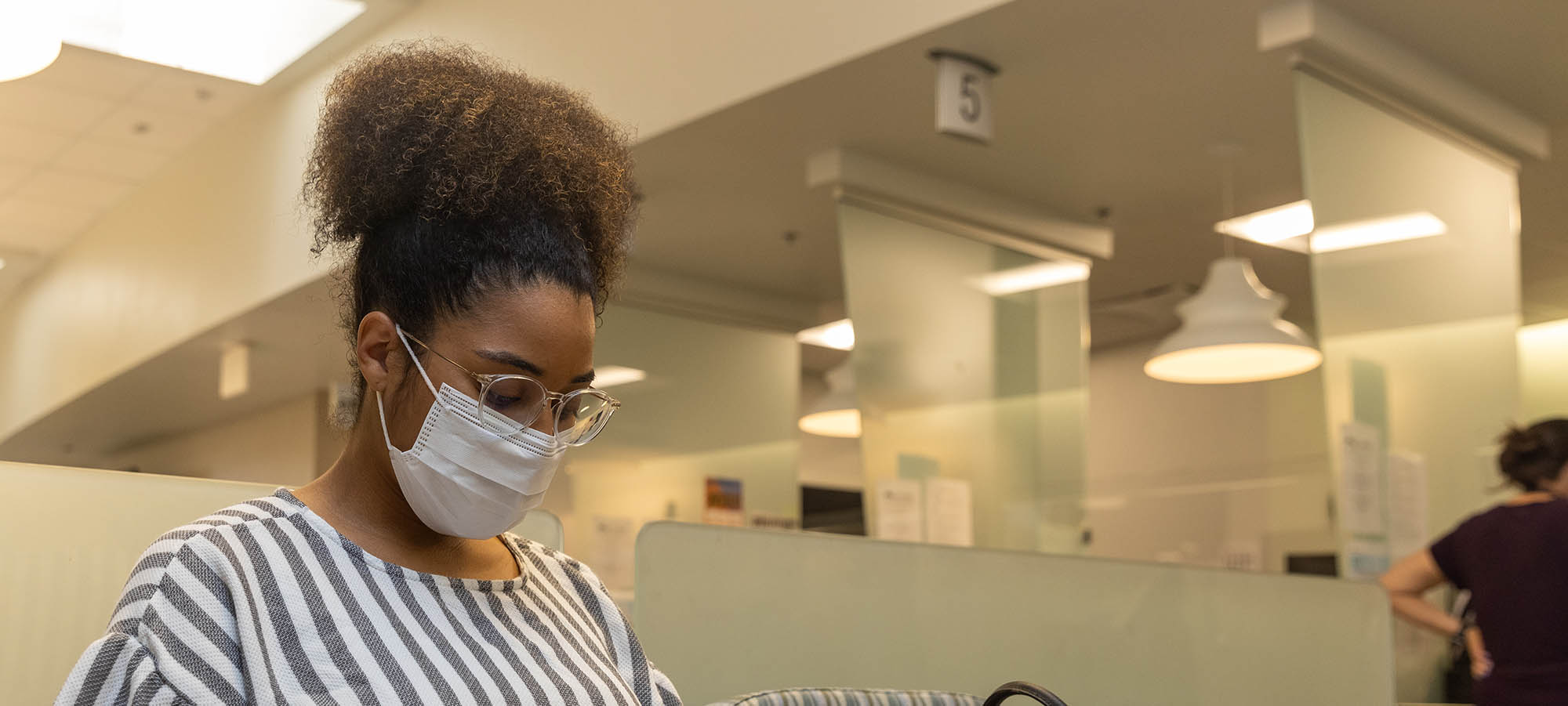Scientists naturally love to publish accounts of their successful discoveries, but when it comes to testing the effectiveness of new drugs, sharing negative results is often just as important as reporting the positive outcomes.
University of New Mexico researchers were part of team that published a new study in JAMA detailing the failure of two investigational drugs to treat lung injury resulting from the SARS-CoV-2 virus.
Both drugs targeted parts of the renin-angiotensin system (RAS), which controls both pro- and anti-inflammatory responses in the blood vessels, said Michelle Harkins, MD, professor in the UNM Department of Internal Medicine and co-chief of the Center for Adult Critical Care.
The drugs aimed at reducing COVID-caused inflammation in the vascular system and had shown promise in animal models. “This was a big surprise, because we actually expected it to work,” she said. “Just mechanistically it seemed to make sense that it would have some benefit, but it did not.”
The JAMA paper summarized the findings of two placebo-controlled randomized clinical trials conducted with 3,214 adults hospitalized with acute COVID-19 at 35 U.S. medical centers between July 22, 2021, and April 20, 2022. The fourth Accelerating COVID-19 Therapeutic Interventions and Vaccines (ACTIV-4) study was funded by the National Heart, Lung, and Blood Institute.
The study focused on components of the RAS that modulate angiotensin production, thus changing the balance of these reactions to the angiotensin-converting enzyme 2 (ACE2) that is targeted for invasion by the coronavirus. “The reason it was considered is because the SARS CoV-2 binds to the ACE2 receptor and downregulates it,” Harkins said. “That’s how it’s brought into the cell to wreak its havoc.”
SARs-infected heart and lung cells trigger an imbalance in the RAS that promotes inflammation, constricted blood vessels and dangerous blood clots. The investigational drugs both work on molecular pathways that lead to an anti-inflammatory response, she said. “These were two experimental models that in animals showed some benefit for acute respiratory distress syndrome and lung inflammation.”
The study drugs – or placebos – were administered in addition to the usual COVID-19 therapies the patients received, including antiviral medications, immune-modulating therapies or anticoagulation drugs.
The study’s primary outcome was the number of days alive and free from supplemental oxygen during the 28 days after being enrolled in the trial. In the end, Harkins said, the experimental therapies “didn’t make any difference.”
Why weren’t the drugs effective in treating COVID symptoms? Harkins said it might be the number of patients in the study was too small to detect an effect, or that it is too late to administer those drugs at the point when a patient already requires supplemental oxygen. Or, she says, perhaps the underlying assumption is flawed. “Maybe ACE receptor modulation is not important in the human model.”
UNM contributed about 55 patients to the study, Harkins said. UNM’s ethnically and racially diverse patient cohort had both the Delta and Omicron COVID variants, she said. “We followed these people out for 90 days."
She credited her co-investigators, nurse practitioner Krystle Apodaca, DNP, and nephrologist Pedro Teixera, MD, an assistant professor in Internal Medicine, with helping to conduct the UNM branch of the research, along with colleagues in the UNM Clinical & Translational Science Center.

UNM is now being included in some of these discussions for other platforms, this is going to be a great jump for getting into NIH trials for the clinical setting
The ACTIV-4 study is still ongoing and patients continue to be enrolled to evaluate another medication for treatment of COVID symptoms. Meanwhile, Harkins said, UNM’s successful participation in the ACTIV-4 trials sets the stage for further participation in National Institutes of Health (NIH) clinical trials.
“UNM is now being included in some of these discussions for other platforms,” she said. “This is going to be a great jump for getting into NIH trials for the clinical setting.”
